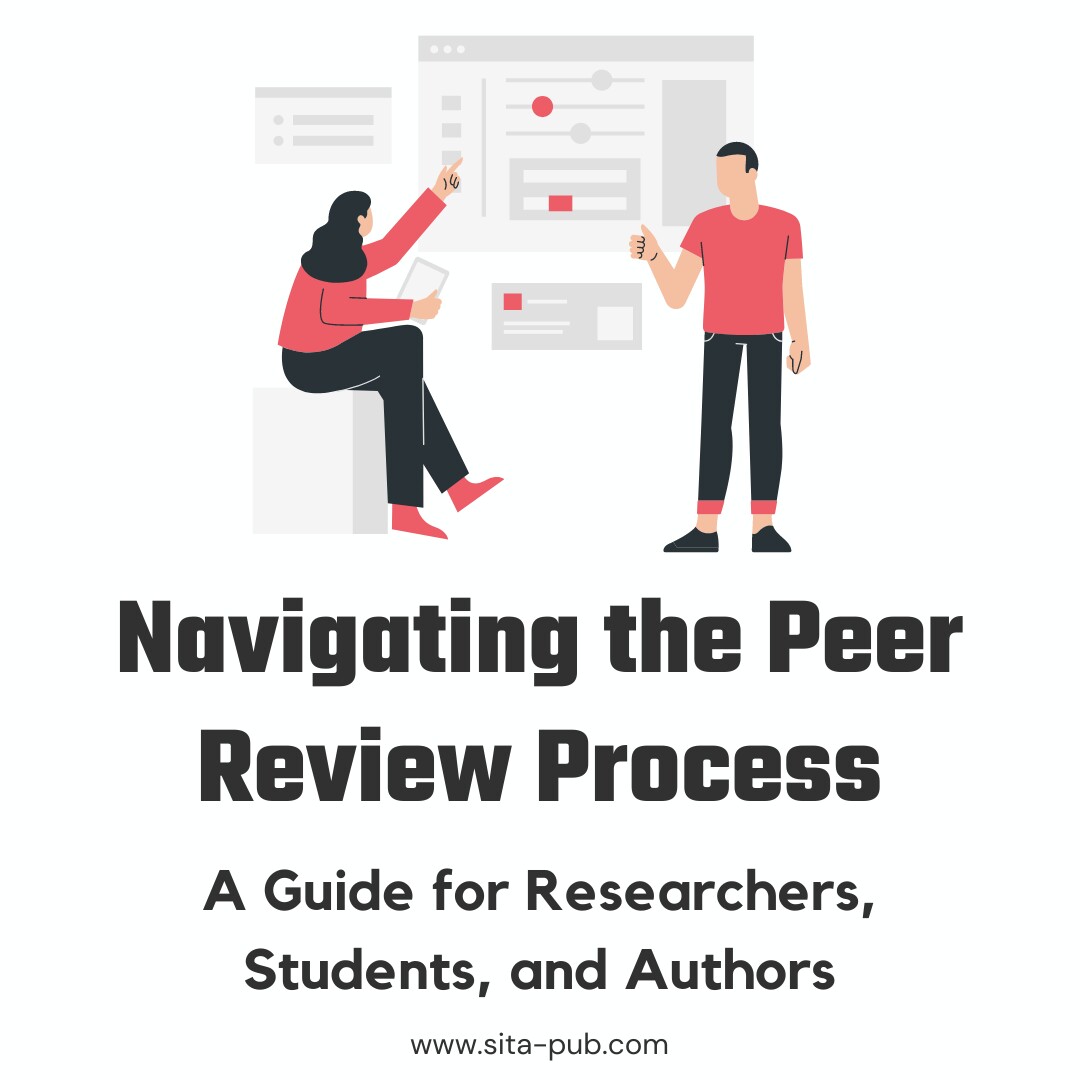Navigating the Peer Review Process: A Guide for Researchers, Students, and Authors


The peer review process is a very important part of getting your research published. It makes sure that the research is good quality and reliable. It's a big step in the journey of getting your research published in scientific, scholarly, or other journals.
Imagine you are ready to share your research with the world. You send it to a journal, but it doesn't go directly to the editor. Instead, it's given to other researchers in your field, who are like your "peers." These reviewers read your work carefully, check if it's original, if the methods are good, and if the results are important. They then give you feedback in the form of comments and suggestions. This process is often called manuscript submission and is a key part of making sure the research is honest and reliable.

Peer review is very important for keeping research trustworthy. It helps to:
Make Sure the Research is Good: Reviewers look for mistakes, inconsistencies, and problems with how the research was done. This makes sure the research is reliable.
Make Sure the Research is Done Right: Reviewers check how the research was done and how the data was analyzed. This makes sure the research is done in a good way and that the results are trustworthy.
Make Sure the Research is Useful: Reviewers look at how original the research is and if it adds something new to the field. This makes sure that the research is useful and helps move the field forward.
There are different ways to do peer review:
Single-Blind Review: The reviewers know who the author is, but the author doesn't know who the reviewers are.
Double-Blind Review: Both the author and reviewers don't know each other's identities.
Open Review: Everyone knows who the author and reviewers are.
Post-Publication Review: Feedback is given after the research is published, allowing for more discussion and critique.
When you send your research for peer review, be ready for:
Changes: Reviewers might suggest changes to your research paper, like adding or removing parts, making things clearer, or improving the writing style.
Comments: Reviewers will give you detailed feedback on your research, telling you what they liked and what they didn't like, and giving you suggestions for improvement.
Positive: "The researchers did a good job with this research. The results are important and add a lot to the field."
Negative: "The research doesn't have a clear idea behind it. The researchers need to show more evidence to support their conclusions."
Constructive: "The writing is clear, but the researchers could organize the results section better."

Write Clearly and Concisely: Write in a simple and easy-to-understand way, avoiding technical terms and unnecessary complexity.
Think About What Others Might Say: Think about what people might criticize about your research and address those concerns in your paper.
Follow the Journal's Rules: Carefully follow the rules of the journal you are submitting to, including how to format the paper, how to cite sources, and how long the paper should be.
The peer review process can be slightly different in different areas of research. For example, in the humanities, reviewers might focus more on how the evidence is interpreted, while in the sciences, they might focus more on how the research was done.
It's very important to think carefully about the reviewers' comments and make changes to your research paper.

Take the Feedback Seriously: Treat the reviewers' comments as helpful advice to make your research better.
Address the Concerns: Carefully address each comment and explain how you have changed your research paper to incorporate the feedback.
Be Polite: Be respectful and constructive in your responses.
For Students: The peer review process is a great way to learn how to do research and write well.
For Researchers: Understanding the peer review process is essential for getting your research published.
For Authors: Responding to reviewers' comments is key to improving your research paper and getting it published.
Remember: The peer review process is a team effort. By responding to the reviewers' comments and making changes, you are helping to make sure that research is good quality and reliable.